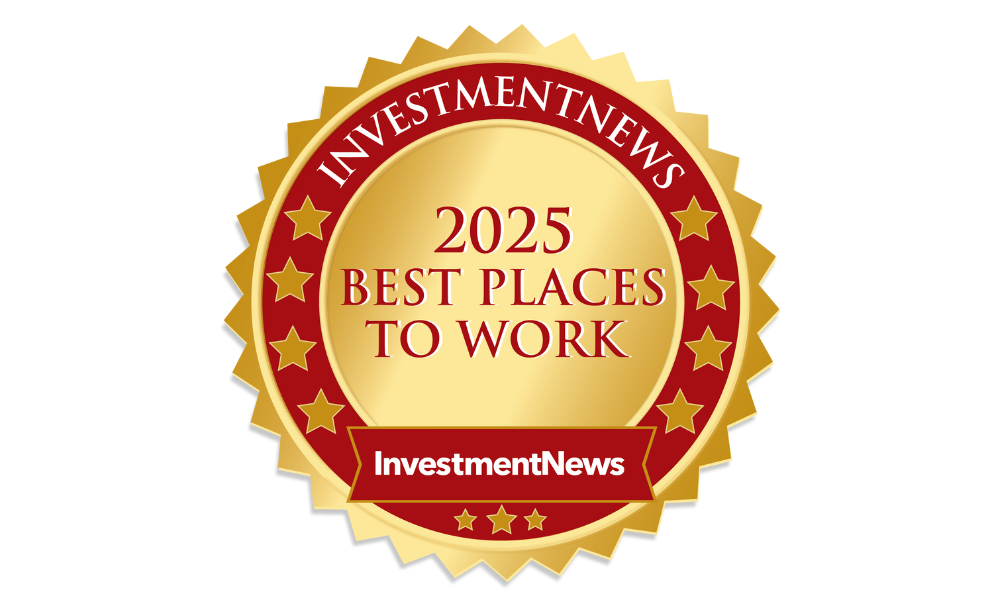Jump to Winners | Jump to Methodology | View PDF
Companies that Care
Flexibility and work-life balance are crucial for today’s financial advisors. Employees across the industry have voiced their concerns and preferences regarding workplace conditions, emphasizing a desire for a more fulfilling work environment. The insights gathered from thousands of employees reflect a unanimous sentiment regarding the modern workplace.
Employee Insights
When asked what changes would enhance their happiness at work, employees shared several key phrases:
- “Ability to handle a remote work environment”
- “Evolving with the ever-changing needs of employees”
- “Companies with greater flexibility are tempting to explore”
- “More work-from-home options”
- “Recognition of work pace to prevent burnout”
- “Flexibility in hours to cater to client needs”
- “Preserving employee autonomy over working conditions”
This anonymous feedback helped shape the nominations for the Best Places to Work in 2025, highlighting policies that resonate strongly with financial advisors. The top three sought-after benefits included a retirement plan, vacation policy, and medical coverage, followed closely by flexible work options. Notably, only 10.9% of respondents expressed a preference for a fully office-based role.
Spotlight on Innovative Firms
Among the winners, VLP Financial Advisors stands out for its commitment to employee flexibility. The firm offers hybrid working schedules tailored to individual needs. Nicholas DiFiore, the firm’s director of operations, remarked, “We respect work-life balance; it shows our trust in employees to manage their schedules effectively.” This approach fosters a welcoming culture and a strong sense of community within the workplace.
Fostering Flexibility at IAG Wealth Partners
Similarly, IAG Wealth Partners prioritizes flexibility, enabling employees to adapt their schedules to handle personal matters without the stress of using paid time off. Chief Compliance Officer Jennifer Von Ruden noted, “We accommodate our team members’ personal circumstances, allowing them to work remotely when needed.” Such policies not only enhance employee satisfaction but also maintain productivity and strengthen team bonds.
Additional Winning Strategies
Per Stirling Capital Management highlights its dedication to meeting both personal and professional employee needs. Chief Operations Officer Carol Sheffield stated, “We offer a flexible work environment that takes into account our team members’ lifestyles.” The firm’s hybrid model and varied work schedules were developed to help employees avoid significant traffic problems while still ensuring productivity.
The Role of Compensation and Benefits
As living costs continue to rise, competitive salaries remain vital. Firms like Per Stirling utilize a range of metrics to ensure they are aligning with industry standards. “This multifaceted approach helps us attract and retain top talent,” Sheffield explained. Similarly, VLP Financial Advisors takes a long-term approach, providing employees free financial planning and robust 401(k) options, highlighting their commitment to employee welfare.
Creating Inclusive Work Environments
Inclusivity is a cornerstone of the Best Places to Work. Firms like VLP adopt proactive Diversity, Equity, and Inclusion (DEI) measures, ensuring a diverse workforce with a strong inclination towards nurturing new talent from various backgrounds. Meanwhile, Winthrop Wealth is continuously exploring ways to enhance its representative balance and promote equal opportunities in burgeoning leadership roles.
Top Workplaces for Financial Advisors in 2025
Financial advisors are at a pivotal point, where flexibility and work-life balance are not just perks but necessities. Recent insights show that successful financial firms are increasingly prioritizing these aspects to enhance employee satisfaction and retention. Here’s a closer look at what makes these organizations stand out as the best places to work.
Flexibility is Key
Employee feedback highlights a strong desire for flexible work arrangements. Many professionals expressed appreciation for the option to work remotely or adopt hybrid work schedules. This adaptability is essential for meeting personal obligations while ensuring that client needs are met effectively. Companies that offer flexible hours are often seen as more attractive employers.
Valuable Employee Benefits
Respondents have consistently ranked retirement plans, vacation time, and medical coverage as top priorities. Moreover, organizations that provide comprehensive benefits packages—including tuition reimbursement and wellness programs—are more likely to attract top talent. A focus on well-being translates into a more engaged workforce and lower turnover rates.
Cultivating a Supportive Culture
Workplace culture significantly impacts employee happiness. Companies that foster a welcoming environment, encourage feedback, and prioritize mental health tend to rate higher on employee satisfaction surveys. For instance, firms implementing zero-burnout policies emphasize rest and recovery as essential components of productivity.
Creating Opportunities for Growth
Continuous professional development is a common theme among leading workplaces. Organizations that invest in their employees’ growth—through mentorship programs and career advancement opportunities—are not only beneficial for employees but also enhance the firm’s reputation. Employees feel more valued when their skills and contributions are recognized.
Commitment to Diversity and Inclusion
In the modern workforce, diversity and inclusion are paramount. Companies actively engaging in fair hiring practices and promoting diverse voices within their ranks create a richer workplace culture. This proactive stance on diversity helps in attracting a wider range of candidates and encourages a more innovative environment.
Investing in Employee Welfare
Many top organizations implement innovative perks, like flexible working conditions and mental health days, to improve employee welfare. For example, some firms offer unique benefits like paid parental leave and childcare support, recognizing that family responsibilities can significantly impact work-life balance.
The Future of Workplace Satisfaction
As the financial industry evolves, organizations must remain agile to meet the changing needs of their workforce. Continuous assessment of employee satisfaction and workplace policies is crucial for retaining top talent. By focusing on flexibility, benefits, and a supportive culture, these companies set a significant precedent for the future of work in the financial services sector.
Discover More
Explore the complete list of top workplaces for financial advisors and learn more about their innovative practices.


